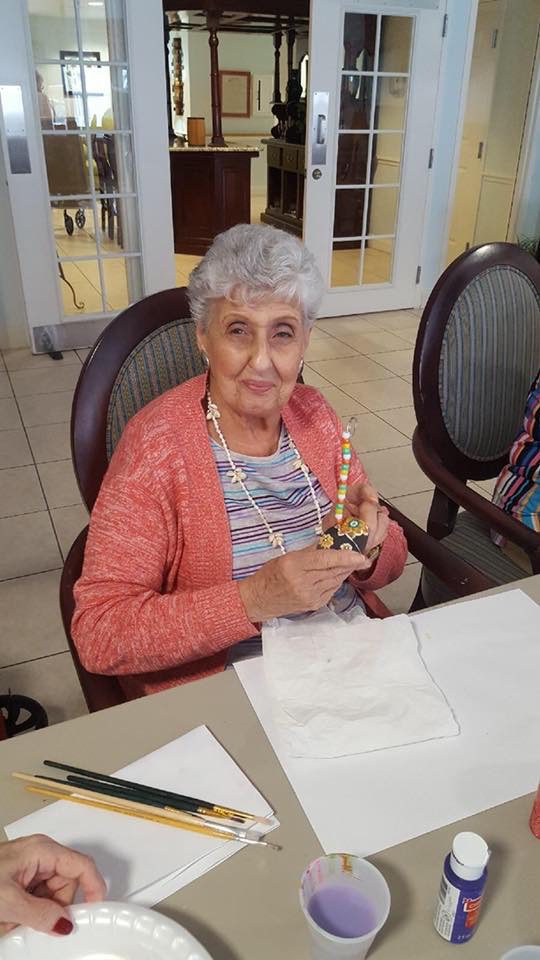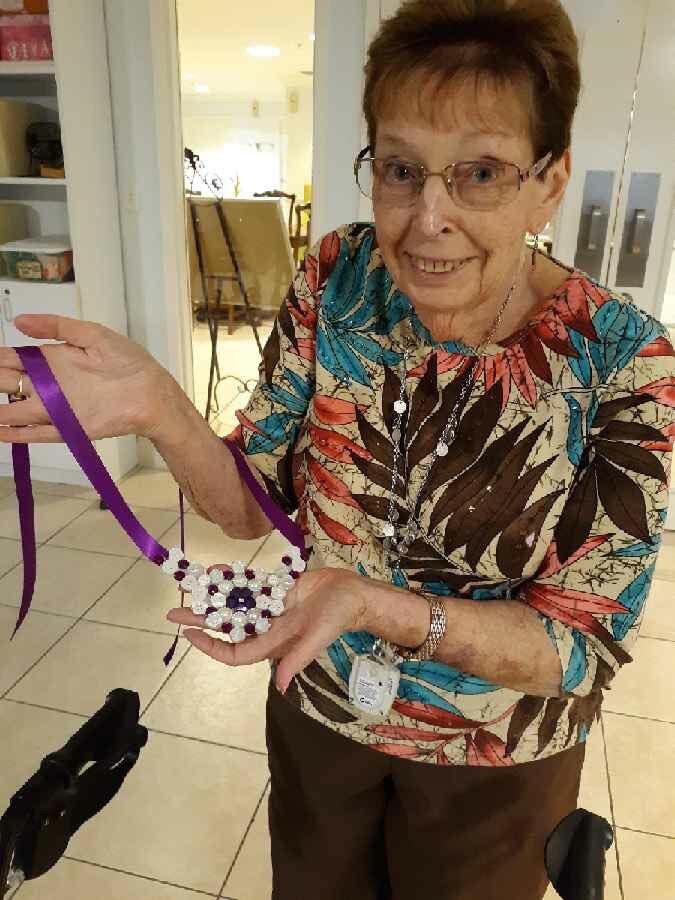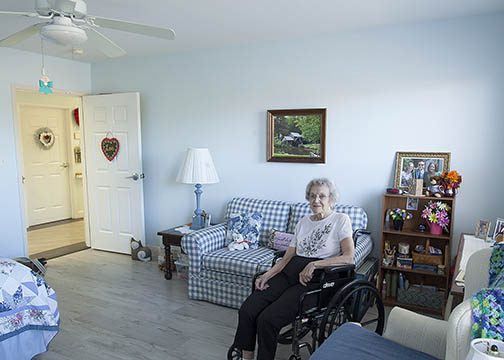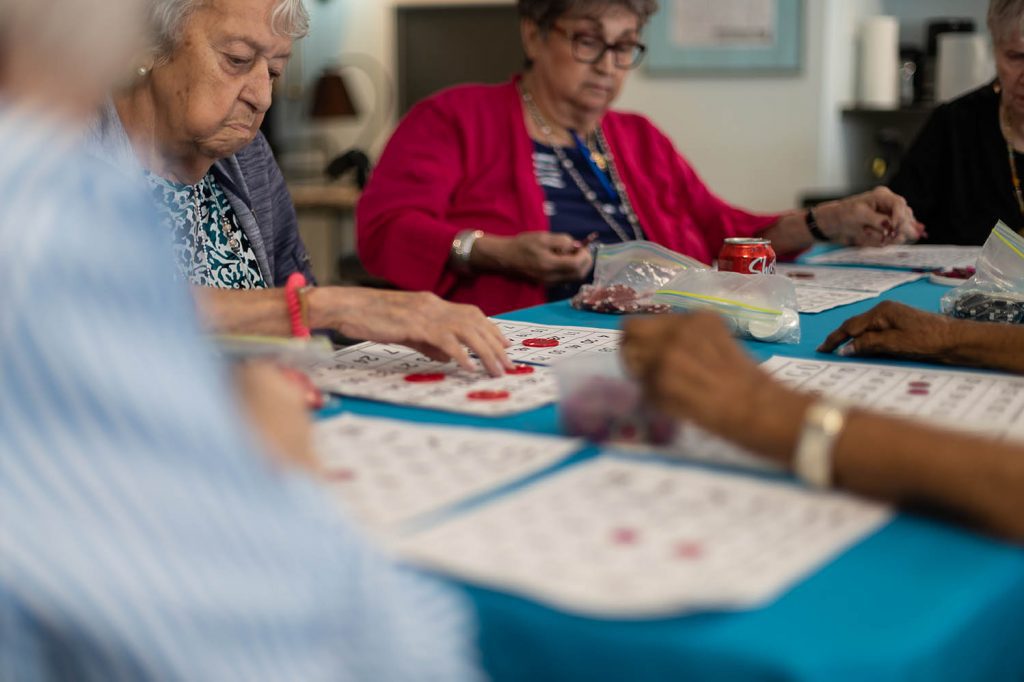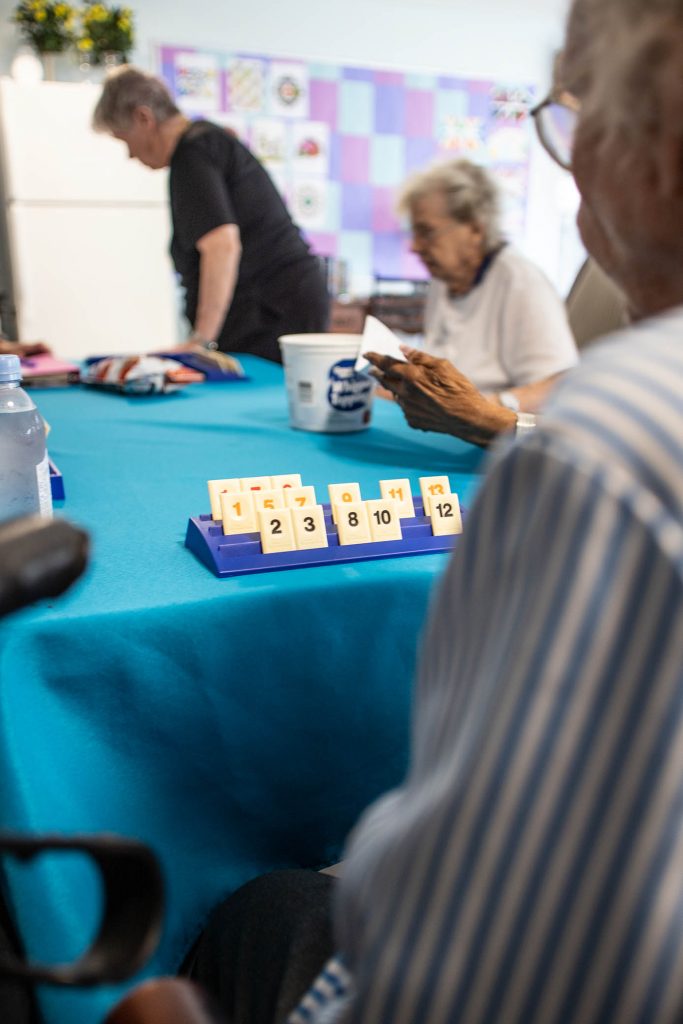
Caregiver Guide
Hampton Manor is a premier assisted living facility providing a comfortable and secure environment for seniors who need extra care and assistance. Our passionate staff of trained caregivers is dedicated to ensuring our residents receive the best possible care, in a friendly and compassionate atmosphere. Our facilities include spacious private rooms, private dining areas, activity centers, recreation areas, and much more. Alongside conventional clinical treatment, we also provide specialized services including physical therapy and cognitive therapy to help support your healing process. To further enhance it, we offer stimulating activities such as music or art classes to boost creativity and overall well-being.
At Hampton Manor, we strive to provide exceptional care that meets the needs of our residents in every way possible. We understand that each individual’s needs are unique, so our experienced professionals customize every service to meet their specific assisted living requirements. Whether you’re looking for short-term or long-term care options for your loved one, Hampton Manor has the ideal solution. With our commitment to excellence and dedication to providing the highest quality of life for our residents, you can rest assured that your family members will be in safe hands at Hampton Manor.
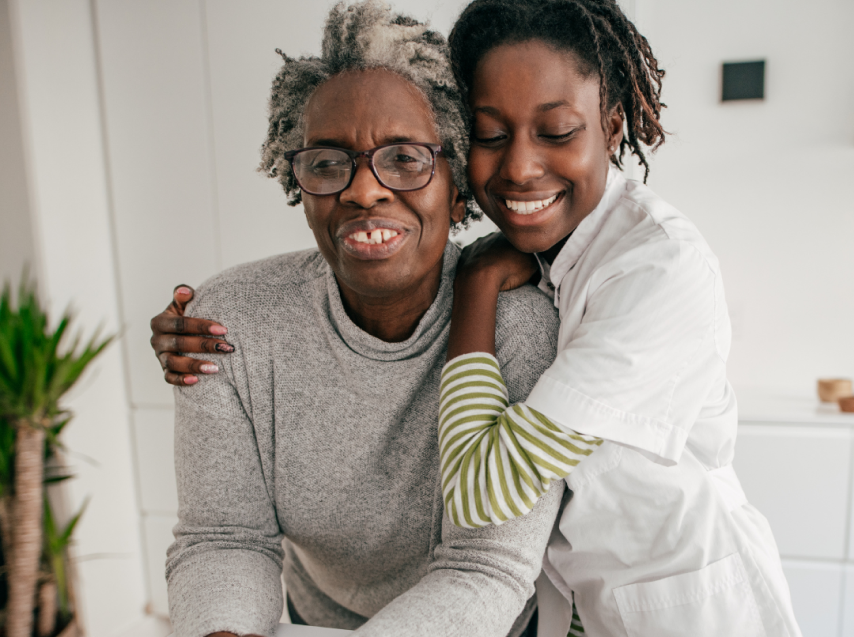
Caregiver Resource Guide
By reading this Caregiver's Guide, you can gain the knowledge and assurance needed to be able to provide quality care for your loved one. Get all of the information necessary so that you have more confidence in your ability to give them the best possible support. It includes information about different types of caregiving, how to find resources, and tips for managing stress.
Customers Review
Floor Plans

A Variety of Living Options
Private Bathrooms and Showers
Emergency response systems
Daily housekeeping
Refrigerators and microwaves
Private laundry
Parking
Life Enrichment Programming
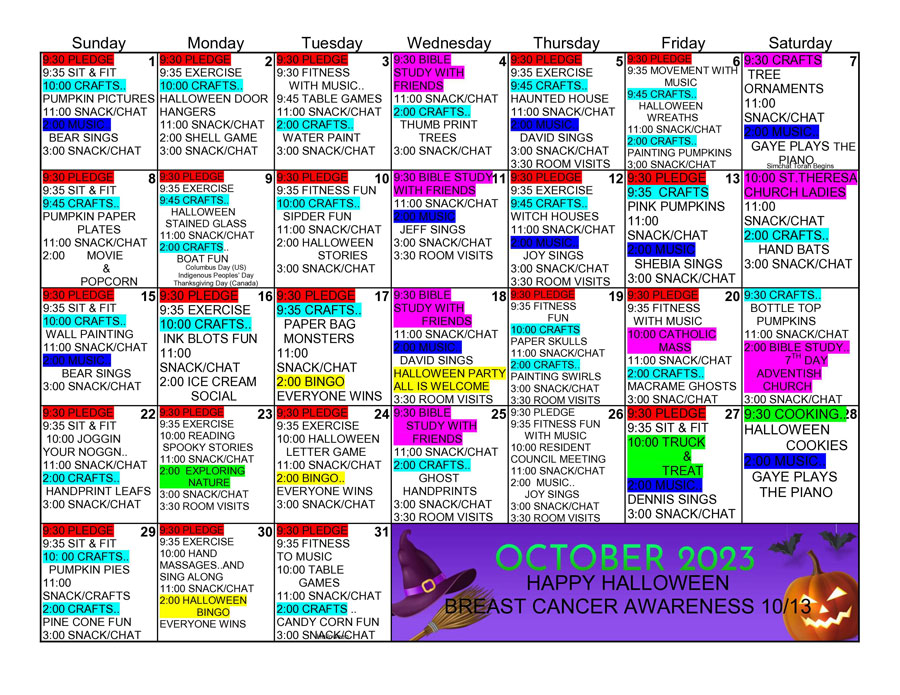
Belleview Calendar

Deerwood Calendar
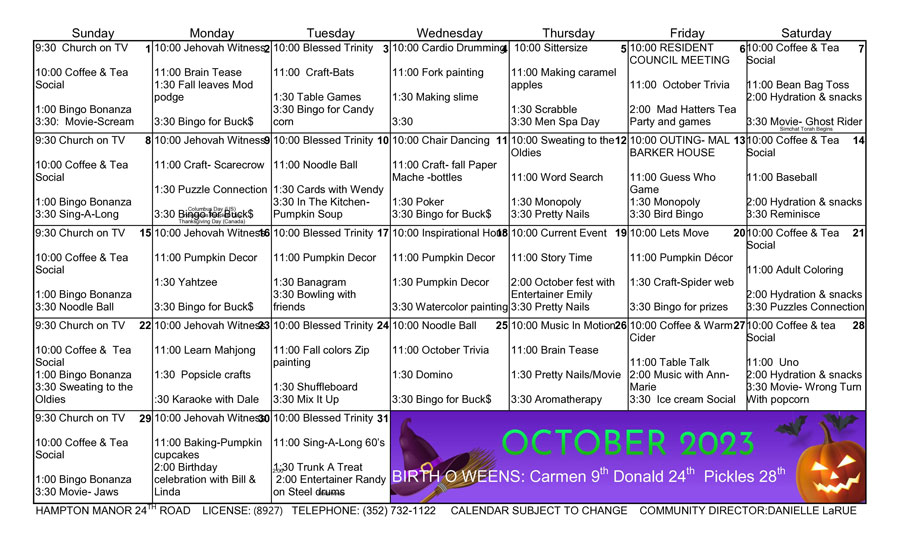
24th Road Calendar
Life Enrichment Programming
Caregiving 101
Caregiving refers to the act of providing care and support to someone unable to fully care for themselves. Caregiving can take many forms, from providing physical care such as bathing, dressing, and feeding, to providing emotional support and companionship. Caregivers may be family members, friends, or professional caregivers who work in healthcare settings.
There are many different reasons why someone may need caregiving. Some common reasons include chronic illness, disability, aging, and mental health conditions. Caregiving can be short-term, such as when someone is recovering from an injury or illness, or long-term, such as when someone has a chronic health condition that requires ongoing care and support.

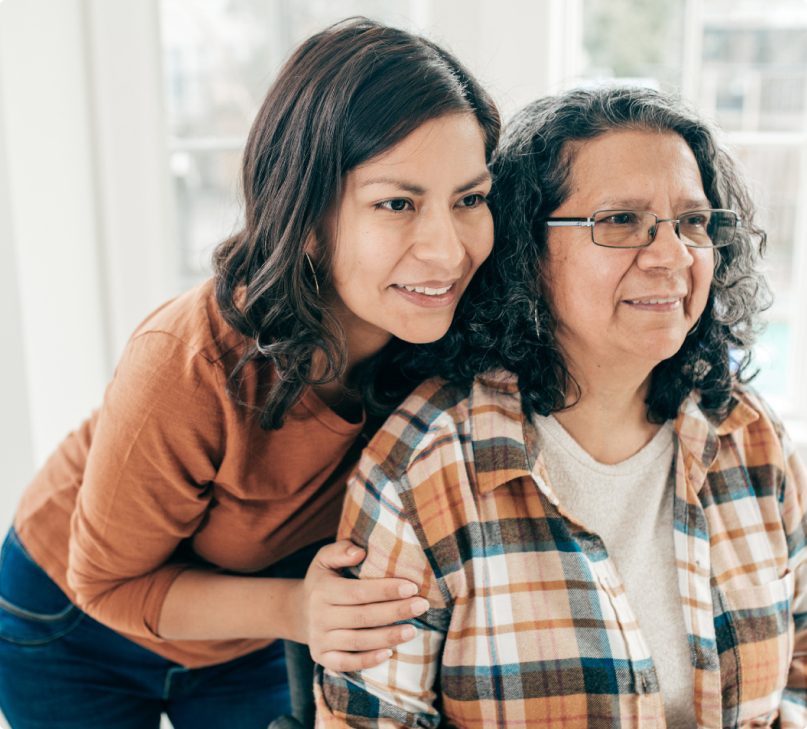
While caregiving can be a rewarding and fulfilling experience, it can also present significant challenges for caregivers. Caregivers may face physical, emotional, and financial stress, as well as social isolation and a loss of personal time and freedom. Caregiving can also be a demanding and time-consuming role, requiring significant sacrifices from the caregiver in terms of time, energy, and resources. Despite these challenges, many caregivers find meaning and purpose in their role and feel a sense of satisfaction from being able to provide care and support to someone they love. With the right resources and support, caregivers can successfully navigate the challenges of caregiving and provide the best possible care to their loved ones.
The guide is designed to assist both professional caregivers as well as family members or friends who are providing care. The guide guides how to manage the stress associated with being a caregiver which includes tips on how to maintain healthy relationships with other people in one’s life while providing the necessary care for their loved one.
Our Communities
Introduction: Your
Role As a Caregiver
Caregiving can be an incredibly rewarding and fulfilling experience, but it also comes with its own unique set of challenges. As a caregiver, you will be responsible for providing physical, emotional, and moral support to someone who needs assistance due to illness or disability. You may be caring for a family member or friend, or you may even have the privilege of being employed as a professional caregiver. Whichever path you take, it is important to understand the many responsibilities that come with this role to ensure both your safety and well-being as well as the health and well-being of those in your care.
When caring for somebody, it is essential to consider their individual needs and circumstances. This includes being aware of any special medical conditions they may have like diabetes or heart disease; understanding their overall mental and emotional health; being aware of any mobility issues they might face; learning how best to communicate with them, and knowing how to respond in an emergency. It is also important that caregivers are familiar with advanced medical equipment such as ventilators in case it becomes necessary during their duties. All these aspects should be carefully discussed with the person receiving care before beginning the job so that everyone’s expectations are clear from the outset.
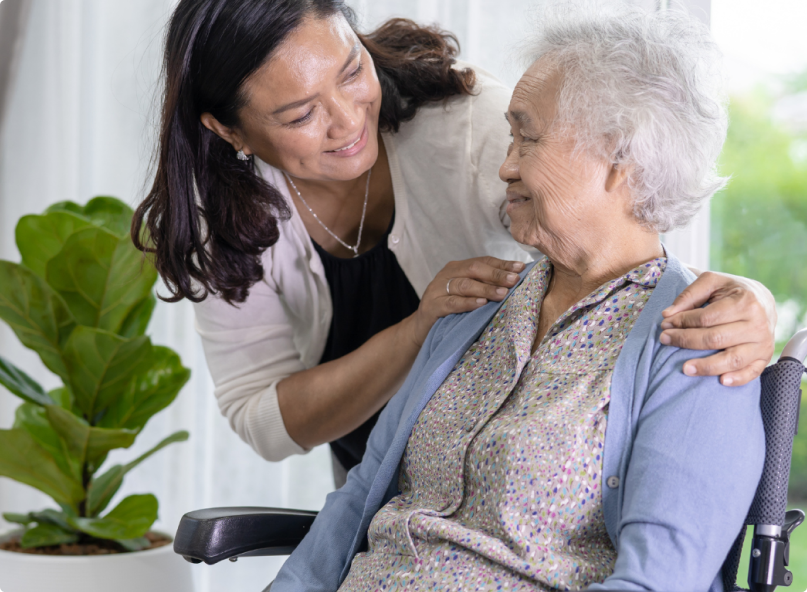
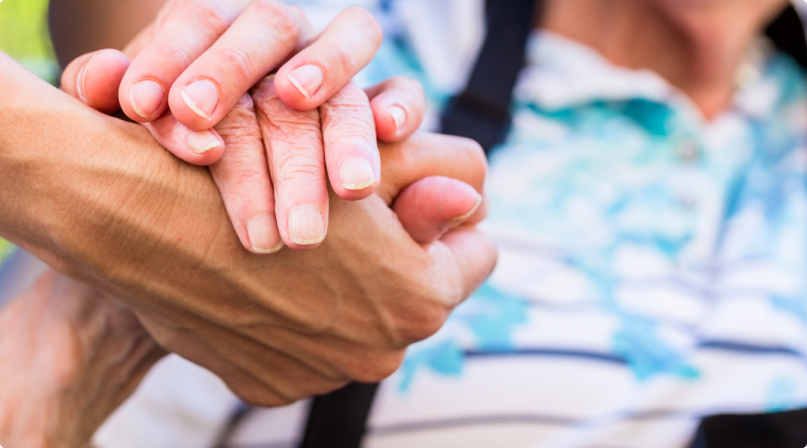
In addition, there will likely be various day-to-day tasks involved in caregiving. This could include help with dressing, bathing, or grooming; preparing meals; shopping for groceries; administering medications; helping with transportation needs; providing companionship and conversation; managing finances; housekeeping duties such as laundry and cleaning; escort services for appointments or social activities; and helping to generally maintain an environment that is safe and comfortable for everyone involved. Depending on the extent of support required by those receiving care, you may need additional training before taking on such responsibilities – it is therefore important to make sure you are sufficiently prepared before moving forward with any arrangements.
Finally, good communication between both parties is key when it comes to successful caregiving relationships – not only should open dialogue exist between yourself and those in your care but also involving their families if applicable. Talk openly about all matters related to the situation (including worries or uncertainties) so that everyone stays informed throughout the process – this can prove invaluable in successfully navigating through any future difficulties which may arise along the way!
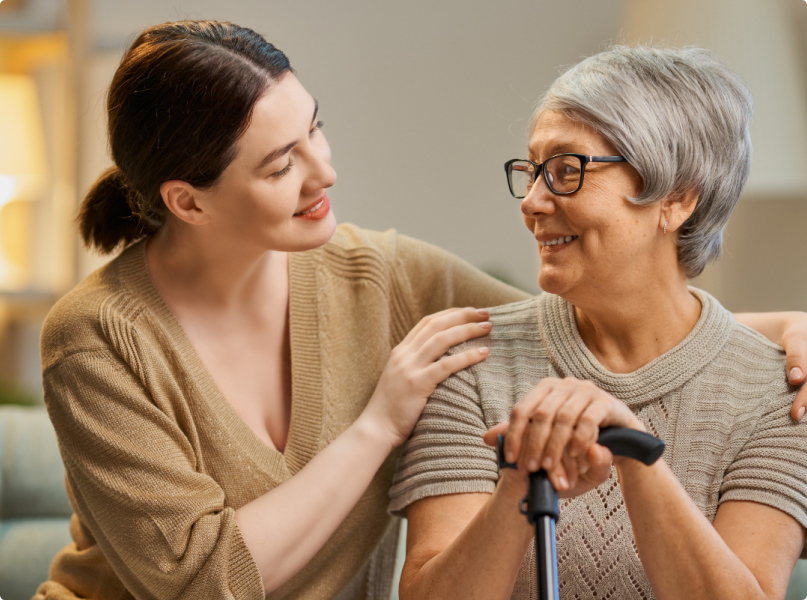
What does a caregiver do?
A caregiver is someone who provides care and assistance to another person in need. Caregivers can take on many forms, from family members providing care for their elderly or disabled relatives to healthcare professionals giving professional medical care to those in need. Caregiving can be as simple as providing emotional support and companionship, or as involved as administering medications, helping with activities of daily living, or making sure the person they are caring for is getting the necessary medical treatments.
The primary responsibility of a caregiver is to ensure that the person they are taking care of has everything they need to remain healthy and safe. This can mean providing meals, bathing and dressing them, helping them maintain good hygiene habits, taking them to doctor’s appointments or other activities outside the home, and being there when they need help. Caregivers need to be patient and understanding when caring for someone who may be dealing with physical limitations or cognitive impairments due to age or disability. Caregivers must also be able to recognize any changes in their loved one’s condition so that proper steps can be taken if needed.
Caring for a Senior At Home
Caregiving is an important responsibility and requires special attention to all aspects of the senior’s care. It is important to understand how to provide comfortable, safe, and nurturing care while keeping in mind the physical and mental health of both the caregiver and the senior.
Preparation is key when providing care for a senior. Before taking on the responsibility of being a caregiver, it is important to learn about the needs of seniors and develop a plan that addresses those needs. Understanding the medical conditions and treatments for any existing medical issues is essential in helping provide effective care. Additionally, researching local resources can help families identify options for assistance or support that may be available in their area.
Seniors often have specific dietary requirements or restrictions due to age-related conditions or chronic illnesses. Working with their primary care physician will help inform them what types of foods are best suited for them based on their individual needs. It is important to create meals that not only meet nutritional standards but are also enjoyable so that the seniors will want to eat them as well!
Social interaction is also an integral part of caring for seniors at home. Spending quality time with them listening to stories from their past, playing games together, or simply enjoying each other’s company can help keep them emotionally engaged which may prevent negative feelings like loneliness or isolation from developing. Making sure to schedule regular visits from family or friends who they enjoy spending time with can make a huge difference as well!
Being able to recognize signs related to physical, emotional, and mental health is an important part of providing proper care for seniors at home. Knowing what changes should be reported immediately (such as sudden confusion) versus those that require more monitoring (like subtle personality shifts) will help ensure their safety while still allowing them some independence when possible. Additionally, understanding medications and treatments prescribed by doctors as well as the steps necessary if they start feeling unwell will help ensure they get appropriate treatment quickly if needed.
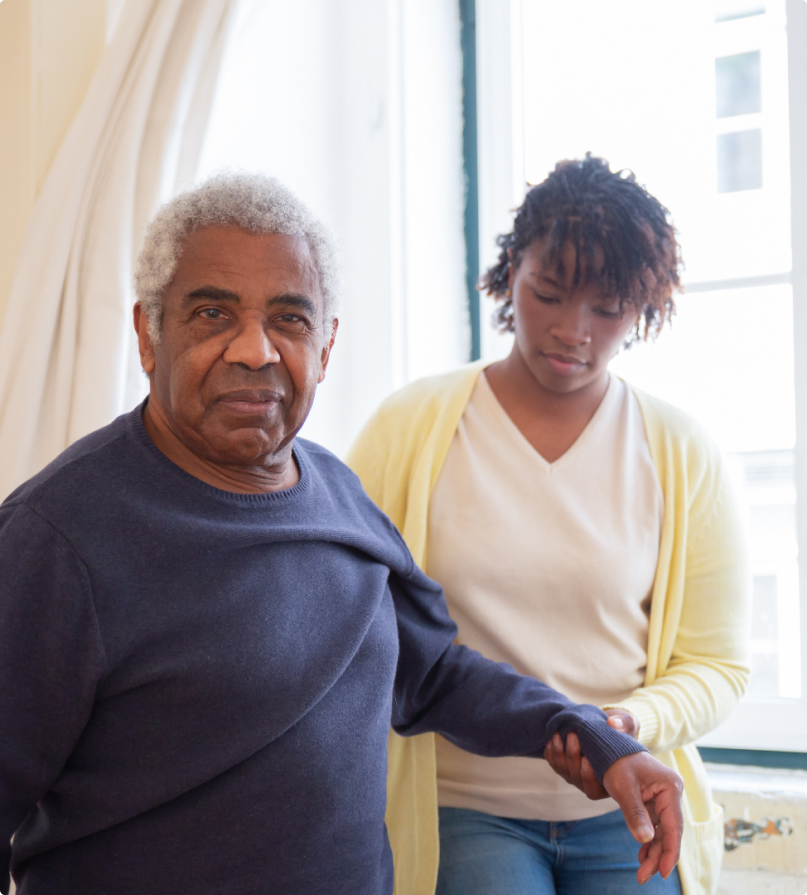
What You Can Do To Be A Supportive Caregiver
Listen actively and with patience.
Provide emotional and social support by offering companionship, understanding, and reassurance.
Encourage them to engage in activities they enjoy.
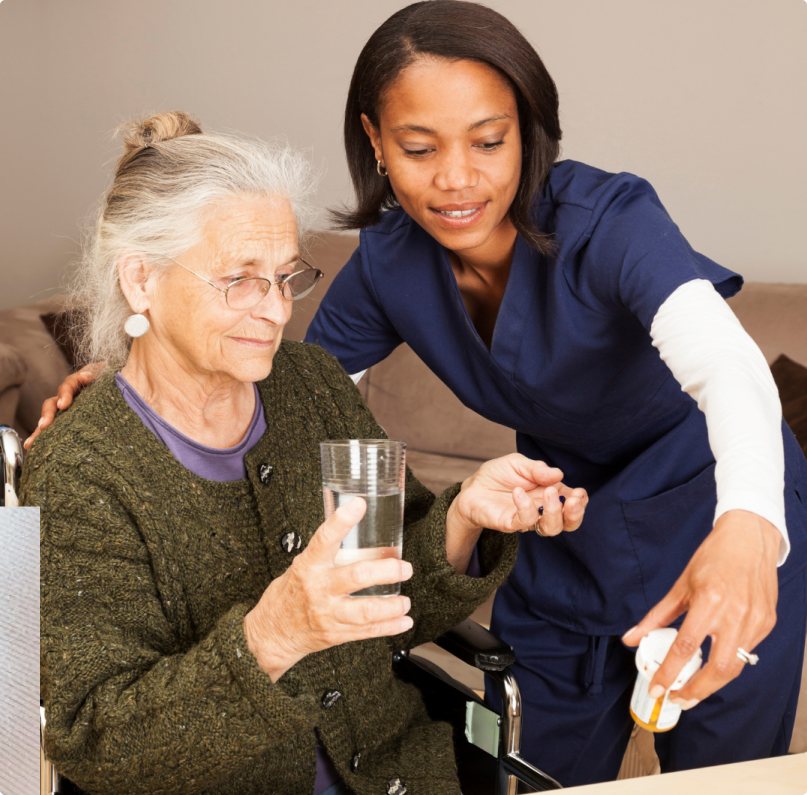

Advocate for their health and safety by ensuring the home environment is free from hazards.
Be mindful of your own emotional and physical well-being by taking breaks when needed and seeking support when necessary.
Caregiving Can Have
Important Benefits
When most people think of caregiving, it is usually in the traditional sense of looking after someone else such as children or elderly parents. However, becoming a caregiver can offer meaningful benefits to both the person providing caregiving services as well as the recipient. According to research, becoming a caretaker for someone else can have myriad physical, emotional, and psychological benefits. Studies have found that providing regular care for another person can lower levels of stress and depression, increase feelings of self-worth, improve physical health, and foster greater friendships with others. Though caring for another requires significant time and effort, medical professionals recommend participating in this activity at least once for its lasting personal rewards. Whether it's monitoring a loved one's nutrition and exercise or simply listening and providing reassurance, these positive effects can be felt widely throughout the caregiving experience.
At Hampton Manor, we go above and beyond to create a supportive environment for both patients and caregivers alike. Our compassionate staff is always available to answer questions or lend a hand when needed. We strive to create an atmosphere of understanding and respect so that everyone can feel comfortable sharing their concerns or needs.
By choosing Hampton Manor, you will be taking advantage of expert caregiving services that come with many important benefits. With us, you can rest assured knowing that your loved one is receiving personalized attention from highly trained professionals who are dedicated to making sure their every need is met.
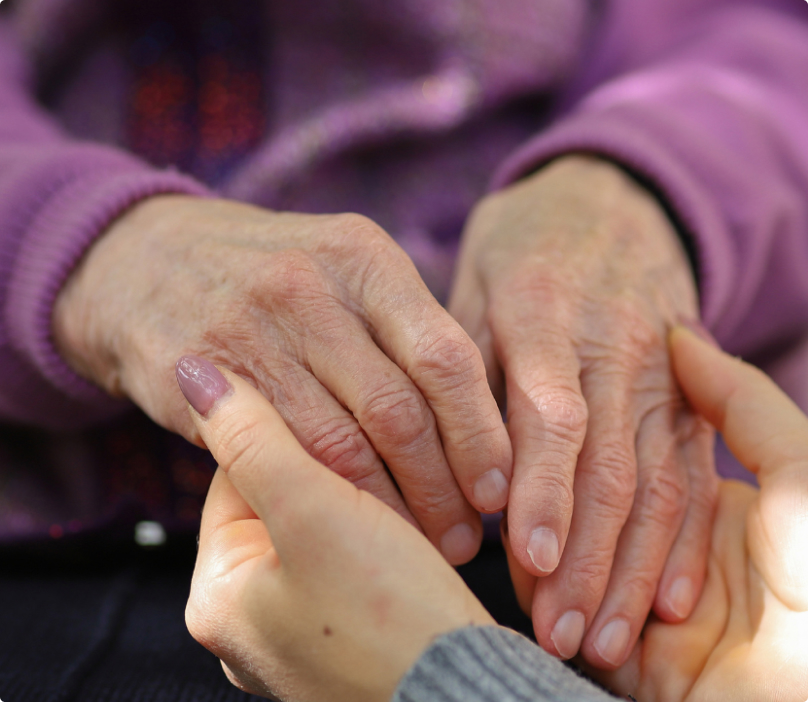
Caregiver Challenges

Caregiver Fatigue
Caregiver fatigue is a state of physical, mental, and emotional exhaustion that can be caused by the demands of caregiving. The warning signs of caregiver fatigue are unmistakable: a feeling of being overwhelmed, heightened anxiety and depression levels, as well as difficulty sleeping.

Managing medications
Often individuals receiving caretaking services take an array of pills daily that must be kept track of and accounted for. Navigating medication can be a tricky task for caregivers, as they need to guarantee that their charge is following the doctor's orders and not forgetting any doses.

Providing Emotional Support
Caregivers can be a lifeline for others, providing them with emotional support regularly. They are often the main source of comfort and understanding in challenging times. This may prove to be a difficult task, as it can be hard to remain optimistic and encouraging when going through periods of stress.

Physical Health Problems
Caregiving can also take a toll on caregivers’ physical health. The demands of caregiving can lead to sleep deprivation, which can weaken the immune system and make caregivers more susceptible to illness. The physical demands of caregiving can cause musculoskeletal problems such as back pain or carpal tunnel syndrome.
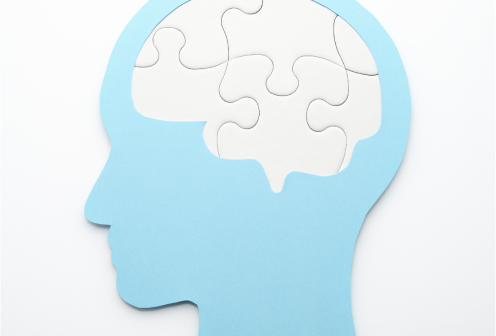
Maintaining a Sense of Self
Due to the demands of caretaking, many caregivers find that they have less time for themselves and their interests. This can lead to feelings of isolation and loneliness, which can be very challenging for caregivers to deal with.
When To Get
Professional Help
Caregiving often involves a great deal of physical, emotional, and financial stress as well as seemingly never-ending responsibilities. It can be a difficult journey that can leave caregivers feeling overwhelmed, exhausted, and in need of extra support. To ensure you have the best chance of successful caregiving, it’s important to understand when it might be time to get professional help.
For some caregivers, asking for help can become necessary if the challenges they are facing are becoming too much to handle on their own. This could include situations where the individual needs more specialized assistance than what is possible for family members or friends alone to provide. Examples may include medical tasks such as administering injections or setting up complex medical equipment, providing medication management, or having access to additional resources such as home health aides or personal care attendants who can come in and help out with certain tasks around the home.

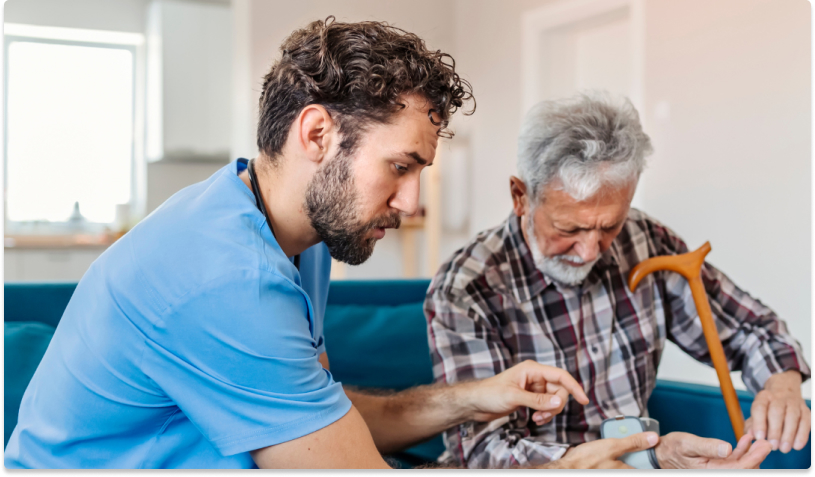
Caregivers should also look into getting professional assistance if they are struggling with physical exhaustion or mental strain due to prolonged exposure to stressful situations and long hours spent caring for a loved one. By collaborating with seasoned professionals, you can gain insight into the most effective approaches for tackling difficult tasks. Additionally, these experts will assist in implementing stronger communication tactics and providing top-notch care to those dealing with chronic illnesses. Finally, they will help create a respite plan that offers well-deserved rest periods as well as equitable work/activity balance.
When seeking out extra help it’s important to remember that you’re not alone; there are many resources available that are designed specifically with caregivers in mind. Research local organizations offering support services such as counseling programs and support groups where you could meet other people going through similar experiences which can serve as an invaluable source of advice and insight throughout your caregiving journey. Additionally, government agencies like Medicare or Medicaid may be able to offer certain types of assistance depending on individual circumstances while organizations like the National Family Caregivers Association provide online resources aimed at helping families through any stage of the caregiving process from diagnosis onward.
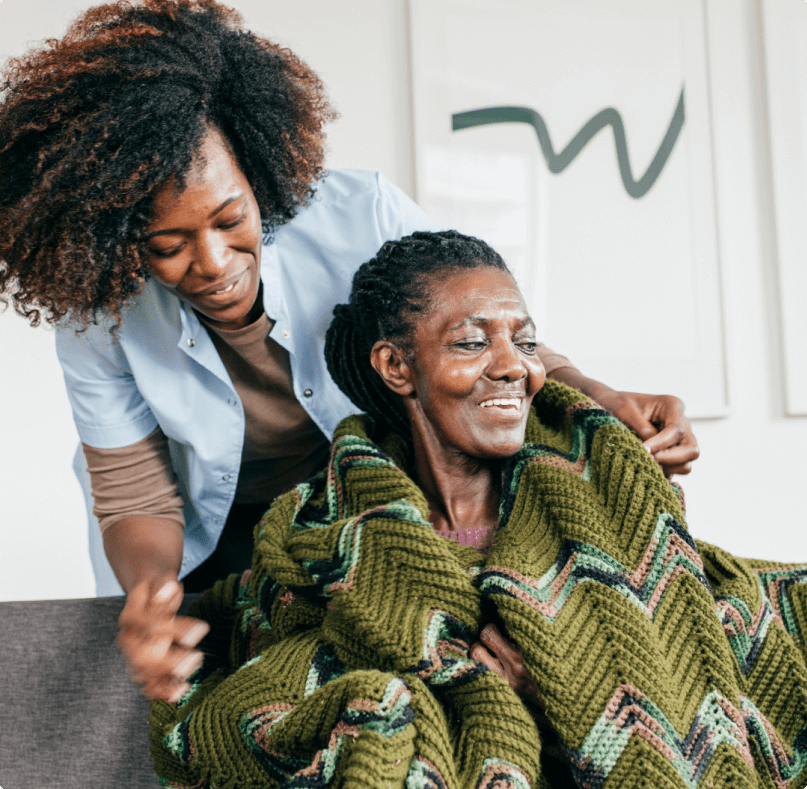
You need information and guidance about moving the older person to a nursing home or other care setting
Ten Tips for Communicating with a Person with Dementia
Validate their emotions.
Speak slowly and use simple language.
Ask open-ended questions.
Open-ended questions invite more meaningful responses that provide enlightenment and understanding, allowing both parties to foster a greater connection during the conversation. This type of question allows you to explore the subject in depth and gain insight into someone else’s perspective. You can even use these questions to elicit creative solutions to problems or use them as a tool to get to know someone better. No matter what you’re trying to communicate, asking open-ended questions gives your conversations more purpose and can help create a stronger bond between you and whomever you are speaking with.
Avoid using negative terms.
Use positive body language, such as a gentle touch or a smile.
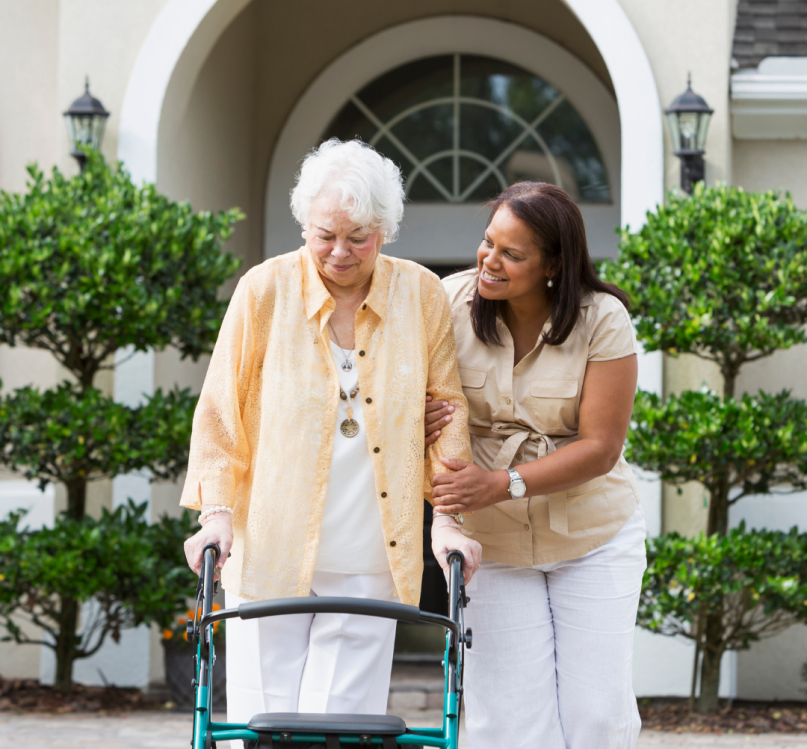

Provide reassurance and encouragement.
Allow them time to answer questions or respond to requests.
Repeat important information multiple times if needed.
Avoid arguing or disagreeing.
Remain calm and patient.
Handling Troubling Behavior
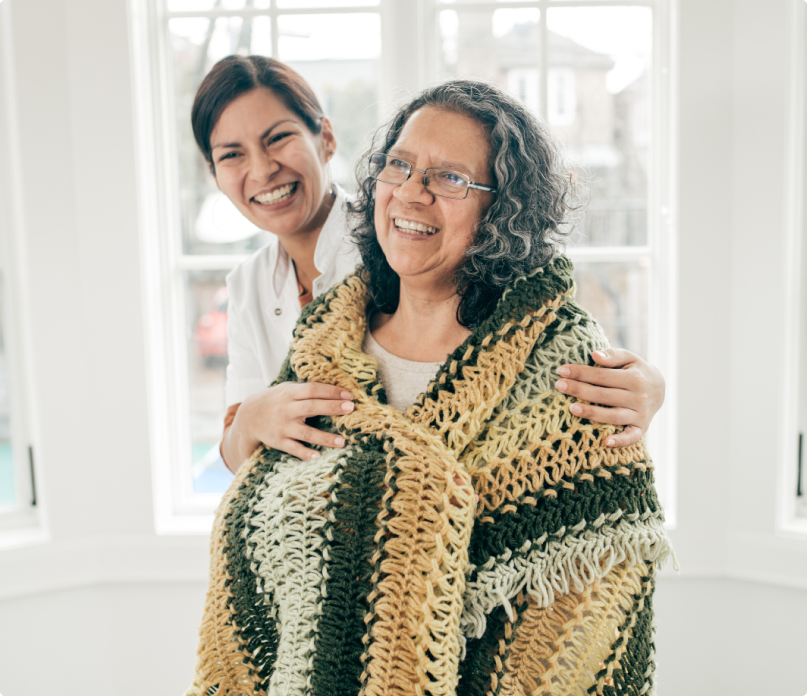
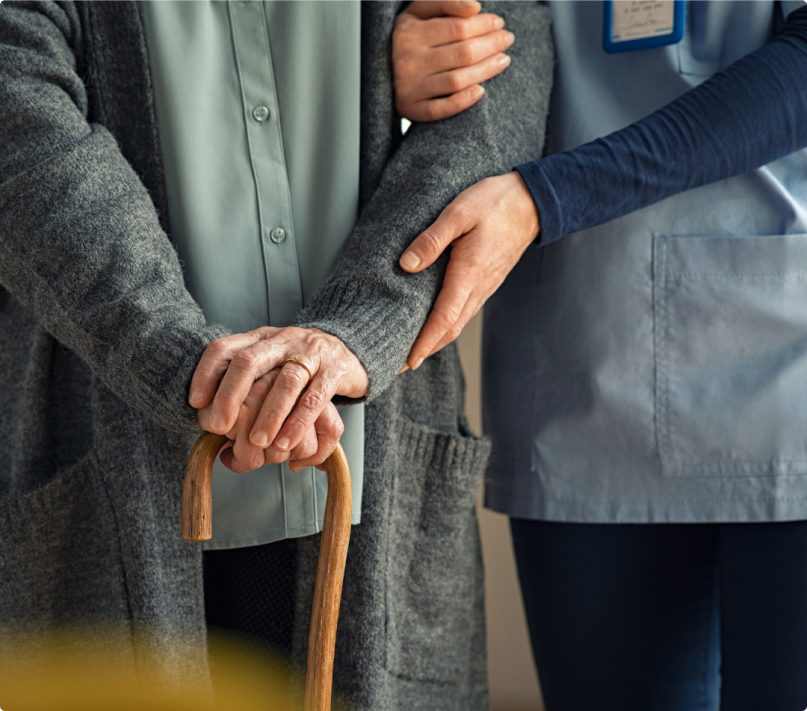
Repetitive Speech or Actions (Perseveration)
Caregiver Self-Care
Caregiver self-care is essential for those who are responsible for providing care to their loved ones. Self-care helps to reduce caregiver stress, ensure that caregivers have the energy and focus needed to provide quality care, and can ultimately improve the overall quality of life of the person they are caring for.
Practicing self-care can take many forms, from physical activities such as yoga or running to mental activities like reading a book or taking part in creative hobbies such as painting or drawing. Additionally, engaging in meaningful social activities with friends and family is important for caregivers. Taking a break from your duties to spend quality time with others can help reduce stress and give you an emotional boost.
Caregivers should also be sure to prioritize rest and relaxation by getting enough sleep each night (at least 7 hours) and taking breaks throughout the day if possible. Eating nutritious meals, engaging in mindful breathing exercises, setting aside time for yourself, and talking with a therapist are all additional ways to practice self-care as a caregiver.
Caregivers must recognize that taking care of themselves is just as important as taking care of their loved ones; without proper self-care, individuals may feel overwhelmed, stressed out, and unable to provide adequate care to the people they love. To ensure the best possible outcome for both parties involved, caregivers should make sure they are practicing healthy self-care habits regularly.
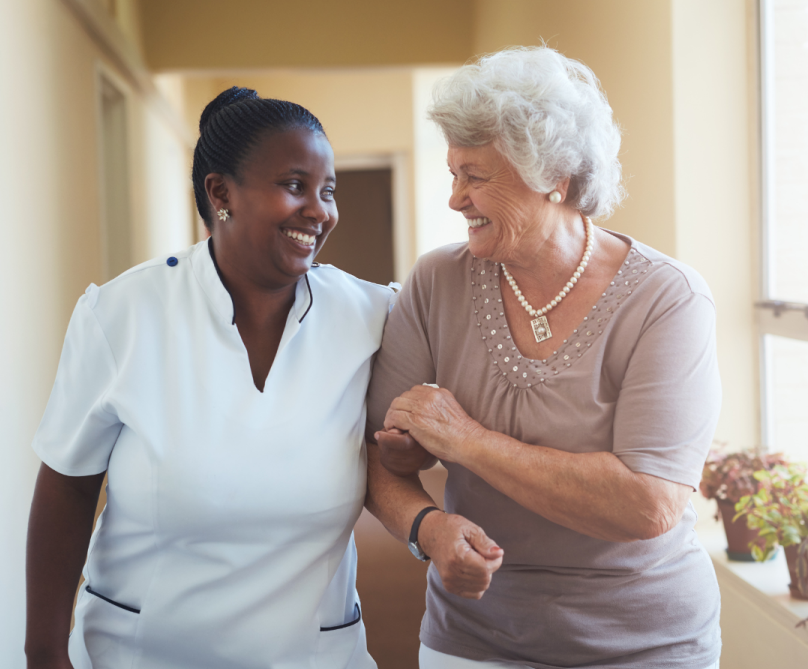
You Are Not Alone
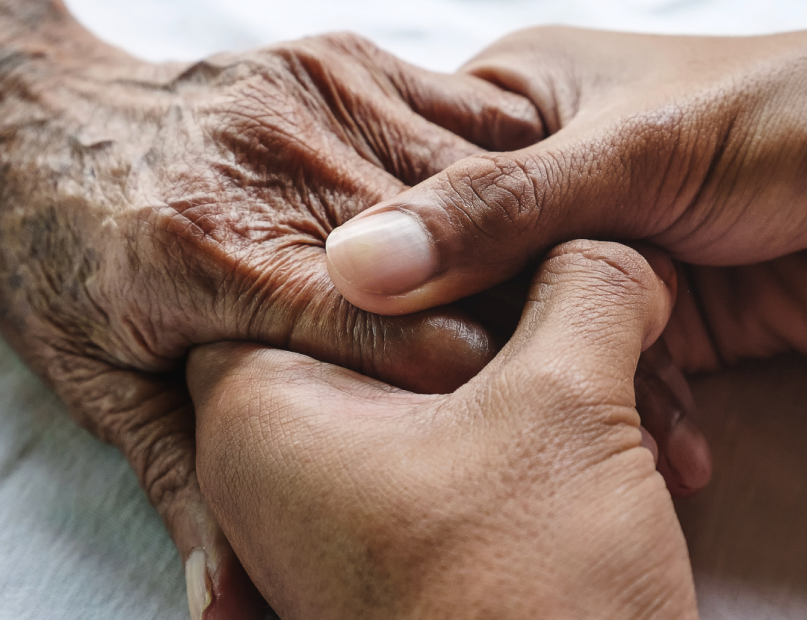
Our Blog
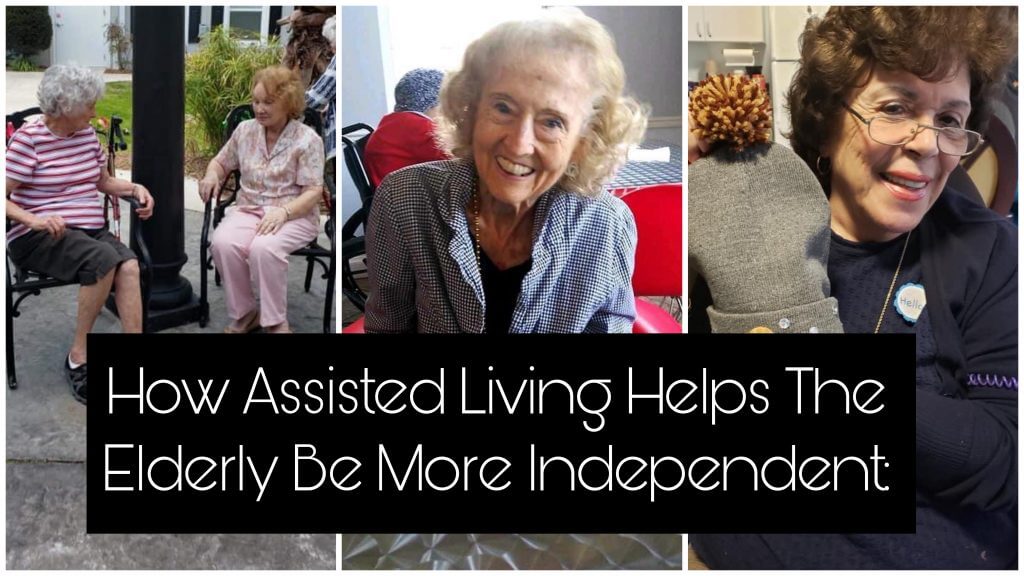
How Assisted Living Helps The Elderly Be More Independent
How Assisted Living Helps The Elderly Be More Independent: The transition from a familiar home
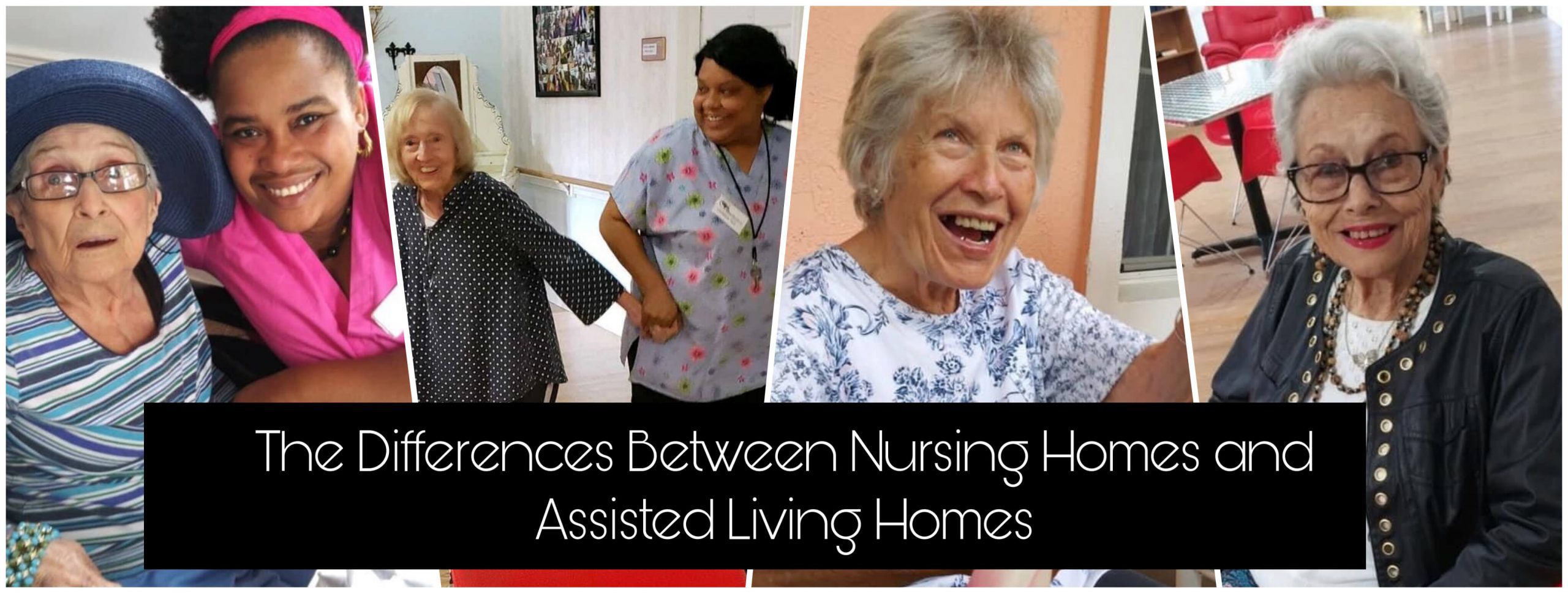
The Differences: Nursing Homes vs. Assisted Living
The Differences Between Nursing Homes and Assisted Living Homes: When you think of assisted living
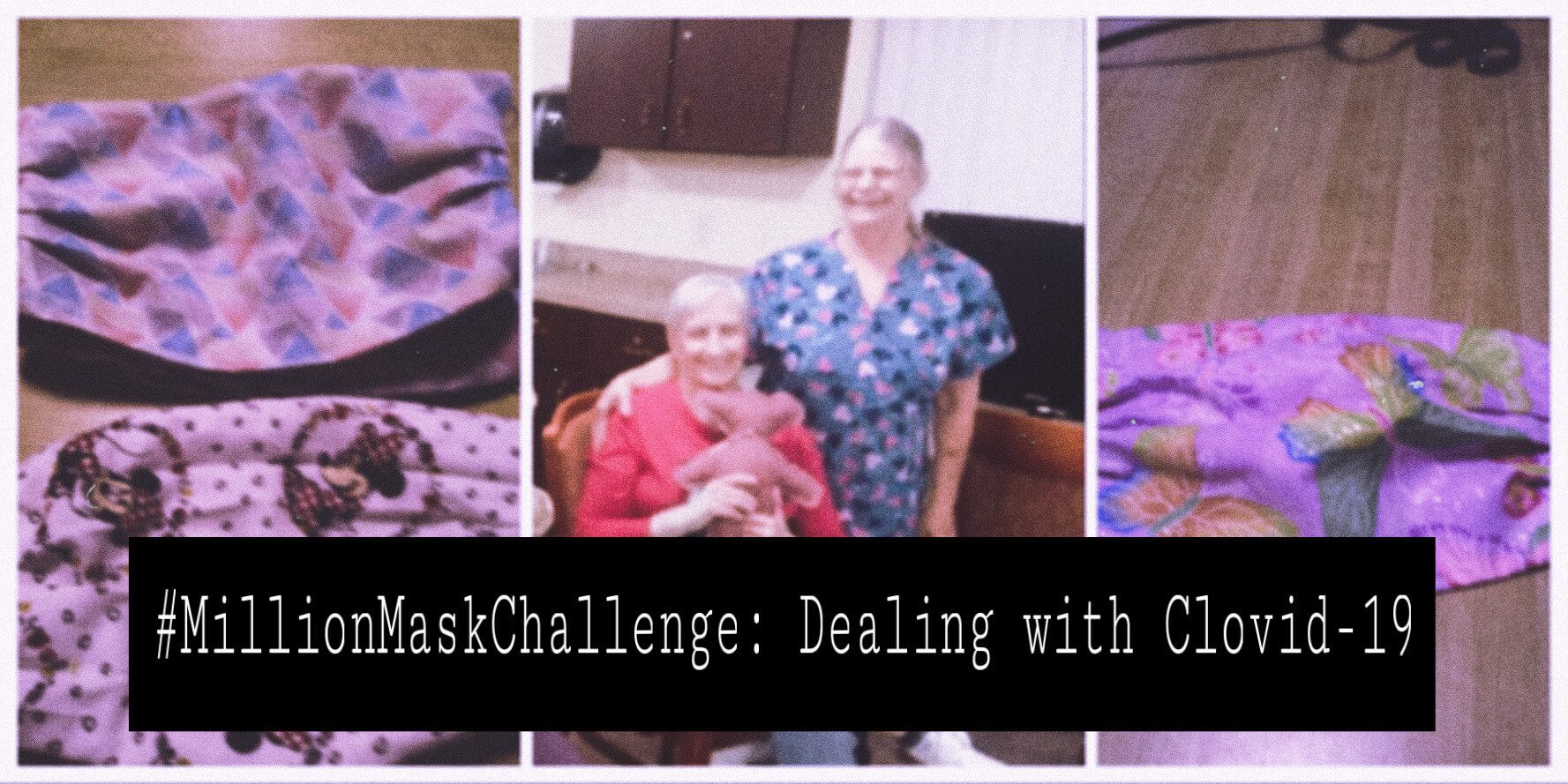
Inspiring #MillionMaskChallenge at Hampton Manor
#MillionMaskChallenge: Dealing with Covid-19 There is no doubt that Covid-19 is changing the country and







